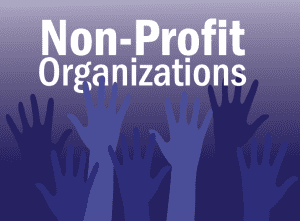 What’s Required of Non-Profit Tax Reporting?
What’s Required of Non-Profit Tax Reporting?
What’s Required of Non-Profit Tax Reporting? There are tens of thousands of businesses across the country that are recognized as non-profits—instead of existing to make money for investors, these businesses operate for the public good and thus claim tax-exempt status.
It’s important to note that just because a business is recognized as a 501(c) organization does not mean that it’s limited in the amount of money it can make. Tax-exempt status has more to do with the type of business being operated. Typical 501(c) organizations include but are not limited to:
- Hospitals
- Churches
- Educational institutions
- Charities
Requirements for non-profits are different than for-profit businesses. To maintain its tax exempt status, there are a certain set of rules non-profits must follow. It’s important to note that failure to stick to the guidelines could result in the forfeiture of a business’ tax exempt status.
Every year the IRS revokes the 501(c) status of more than a hundred companies who failed to follow IRS guidelines. We work with non-profit companies at RJS LAW on a daily basis to help them stay compliant and our experienced team can tell you where the problem areas lie. It’s easy for a nonprofit organization to maintain its tax exempt status—and can be just as easy to lose it.
But these organizations can maintain their tax-exempt status if they heed the rules in six areas:
- Private benefit/inurement
- Lobbying
- Political campaign activity
- Unrelated business income (UBI)
- Annual reporting obligations
- Operation in accord with stated exempt purpose(s)
We touch briefly on the different areas below. If you need more information about Non-Profit Tax Reporting you can visit the IRS non-profit business website at www.stayexempt.irs.gov or you can contact or call us at RJS LAW at (619)-595-1655 to schedule a free consultation.
1. Private benefit/inurement
“A 501(c) organization’s activities should be directed exclusively toward some exempt purpose,” said Richard Crom, Staff Assistant for IRS Exempt Organizations Customer Education and Outreach office. “Its activities should not serve private interests, or private benefit, of any individual or organization (other than the 501(c) organization) more than insubstantially.
Inurement: A 501(c) organization is prohibited from allowing its income or assets to benefit insiders (people with a personal or private interest in the activities of the organization),” said Crom. “Insiders are typically board members, officers, directors, and important employees.” He added that prohibited inurement includes the payment of dividends, the payment of unreasonable compensation to insiders, and the transfer of property to insiders for less than fair market value.
2. Lobbying
When an organization contacts, or urges the public to contact, members or employees of a legislative body for the purpose of proposing, supporting, or opposing legislation, or when the organization advocates the adoption or rejection of legislation, it is lobbying. “501(c) organizations are allowed to do some lobbying,” said Melaney Partner, acting director for the IRS Exempt Organizations Customer Education and Outreach office. “However, if lobbying activities are substantial an organization risks losing its tax exempt status.”
3. Political activity
All section 501(c) organizations are prohibited from directly or indirectly participating in, or intervening in, any political campaign on behalf of (or in opposition to) any candidate running for public office. The prohibition applies to all campaigns (federal, state and local level). “Political campaign intervention includes any and all activities that favor or oppose one or more candidates for public office,” said Crom, who speaks to non-profit organizations on a regular basis about tax-compliance issues. “The prohibition extends beyond candidate endorsements.”
4. Unrelated Business Income (UBI)
Another activity that can potentially jeopardize an organization’s 501(c) tax-exempt status is having too much income generated from activities that are unrelated to the exempt function of the organization. This income comes from a regularly-carried-on trade or business that is not substantially related to the organization’s exempt purpose. An organization that produces unrelated business income as a result of its unrelated trade or business may have to pay taxes on that income.
5. Annual reporting obligation
While 501(c) public charities are exempt from Federal income tax, most of these organizations have information reporting obligations under the Internal Revenue Code to ensure they continue to be recognized as tax-exempt. In addition, they may also be liable for unrelated business income tax as described above, employment tax, excise taxes, and certain state and local taxes.
Public charities generally file either Form 990, Return of Organization Exempt from Income Tax, Form 990- EZ, Short Form Return of Organization Exempt from Income Tax, or submit online Form 990-N, Electronic Notice (e-Postcard) for Tax-Exempt Organizations not Required To File Form 990 or 990-EZ.
“The type of form or notice required is generally determined by the public charity’s gross receipts and the value of its assets,” There are also some public charities that are not required to file Forms 990 or 990-EZ, including churches and certain church-affiliated organizations. Organizations can learn about filing and new requirements applicable to supporting organizations at the IRS Nonprofits and Charities website.
6. Operation in accord with stated exempt purpose(s)
“If you stop doing all or a significant amount of the exempt activities you told the IRS you were going to do in your original application for exemption—you could lose your exemption,” said Crom. “If your organization’s direction has changed, let us know. It could prevent future problems.”
As you can see, the requirements for non-profits are quite different and a failure to follow the guidelines can result in a revocation of the tax-exempt status—putting the entire enterprise in danger.
To make sure your non-profit is compliant with all IRS and California Franchise Tax Board requirements, contact us at RJS LAW. We have an experienced team of attorneys specializing in non-profit tax requirements and we can help. We have offices conveniently located in San Diego and Orange County and we’re here to help all of Southern California. Schedule your no-obligation appointment today (619)-595-1655.

Leave a Reply